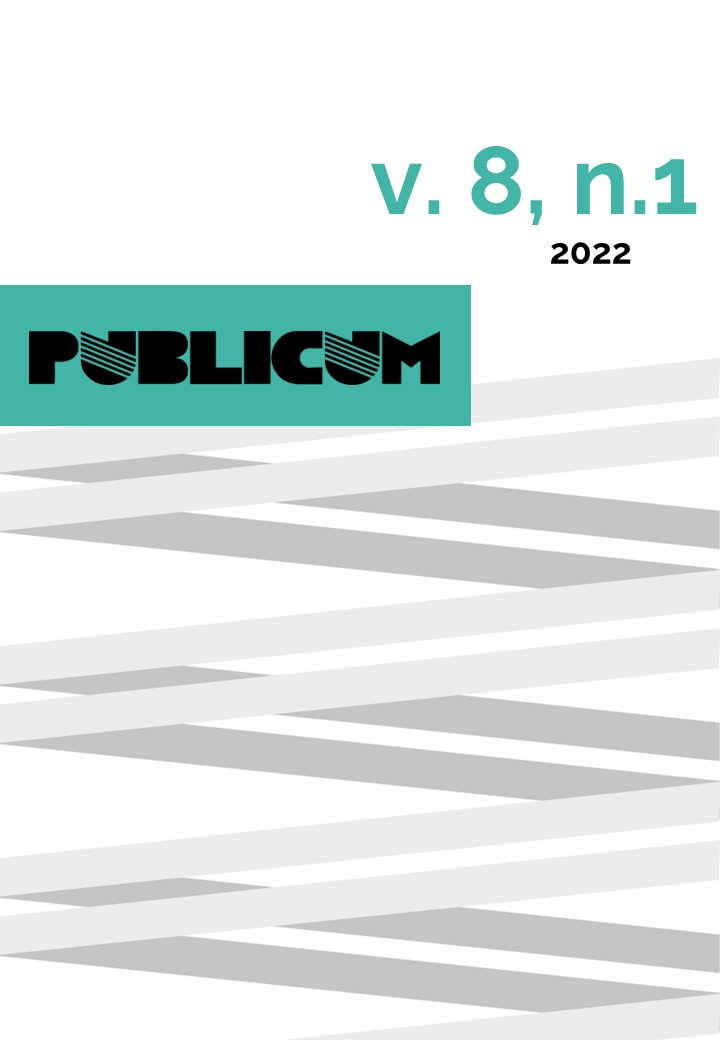O Debate Acadêmico entre Universalismo e Relativismo Cultural: um olhar sobre Asian Values, Sharia Law e práticas indígenas
DOI:
https://doi.org/10.12957/publicum.2022.58512Palavras-chave:
direitos humanos, relativismo cultural, universalismo, valores asiáticos, sharia law.Resumo
Os Direitos Humanos, quando passaram pelo processo de internacionalização, foram estipulados como universais, fixando um padrão de mínimo ético irredutível. Divergindo desta posição, tem-se a teoria do relativismo cultural, oposta ao universalismo, que analisa aspectos culturais de uma sociedade e alega serem estes essenciais para a concepção de Direitos Humanos. Objetivando abordar o embate acadêmico existente entre ambas as teorias, demonstra-se situações existentes dentro da sociedade que utilizam o argumento do relativismo cultural como por exemplo os asian values que traduzem valores intrínsecos de uma sociedade que prioriza o coletivismo ao individualismo; também tem-se presente o argumento cultural envolvendo praticas indígenas brasileiras e a de tribos africanas; bem como uma mescla entra o aspecto cultural e religioso existente na sharia law e no islamismo. Sendo diante de clara diversidade de culturas que a tese do multiculturalismo demonstra ser um possível fim ao debate entre universalismo e relativismo cultural.
Downloads
Publicado
Como Citar
Edição
Seção
Licença
O autor do trabalho declara conhecer e concordar com as regras a seguir:
1) Realizou o trabalho apresentado à revista, sendo inteiramente responsável pelas ideias e conceitos nele emitidos, que não correspondem, necessariamente, ao ponto de vista dos Editores de Publicum.
2) Obedeceu, na realização do trabalho, os princípios éticos aludidos na política de avaliação da revista[RDN1] .
3) Assume a autoria e a responsabilidade pela obra, declarando que ela não infringe quaisquer direitos de propriedade intelectual de terceiros.
4) Responsabiliza-se, integralmente, por danos de natureza moral ou patrimonial que a veiculação da obra venha a gerar a terceiros.
5) Cede à revista os direitos de reprodução, edição e primeira publicação do trabalho em qualquer meio midiático, em particular sob forma digital, em arquivo eletrônico online na internet.
6) Confere aos Editores o direito de modificar o texto apresentado, sem prejuízo de seu conteúdo, quando necessário para uniformizar a apresentação dos trabalhos e para atender as normas de edição próprias da revista.
7) Concorda com a forma final do trabalho aprovada pela revista.
8) Autoriza a divulgação do trabalho nos canais de comunicação da Faculdade de Direito da UERJ.
9) Concorda com a reprodução de pequenos trechos do trabalho em outras publicações da UERJ.
10) Reconhece que, pela cessão e autorizações acima referidas, não receberá remuneração sob qualquer modalidade, tendo estas o caráter de colaboração científica.
11) Tem ciência de que a publicação do trabalho poderá ser recusada caso não considerada conveniente, por qualquer motivo que seja, sendo que tal recusa não gera responsabilidade e/ou ônus de espécie alguma à revista ou UERJ.
[RDN1]Ver COPE.

Publicum está licenciado com uma Licença Creative Commons Atribuição-NãoComercial 4.0 Internacional.

